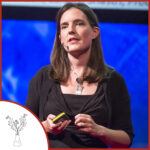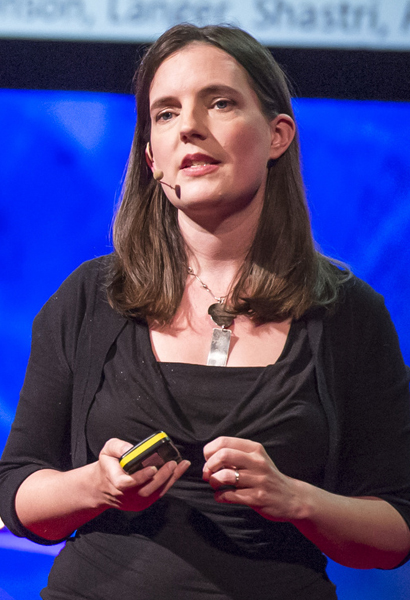

Specialty: Biomedical Materials
Major Contributions:
John Black Professor of Bionanoscience at the Institute for Biomedical Engineering and the Department of Physiology, Anatomy & Genetics at the University of Oxford
Deputy Director of the Kavli Institute for Nanoscience Discovery
Research Director for Biomedical Material Sciences in the Department of Materials, Department of Bioengineering and the Institute of Biomedical Engineering at Imperial College London
Polymer International-IUPAC award for creativity in polymer science
Founder, Former Chief Scientific Officer of RepRegen, Ltd.
Image: James Duncan Davidson (CC BY-NC 2.0)
The recipient of over 30 prestigious awards, Dr. Molly Stevens is a leader in biomedical engineering as well as an advocate for the democratization of medicine and accessibility of healthcare to all.
Earning a doctorate in 2000 in biophysical investigations of specific bimolecular interactions from the Laboratory of Biophysics and Surface Analysis at the University of Nottingham, Stevens spent a few years completing postdoctoral training in the Chemical Engineering Department at MIT before joining Imperial College in 2004.
Currently the John Black Professor of Bionanoscience at the University of Oxford, her research group consists of graduate students as well as postdocs and fellows with members from many different fields because of the interdisciplinary work the group undertakes. According to their website, the research combines biomaterial innovations with soft robotics, and the interface between living and non-living matter, which are underpinned by collaborations with molecular dynamics experts and data scientists in the digital health field.
In efforts to help more people have access to more personalized healthcare, Stevens leads research in advanced diagnostics on the nanoscale – harnessing the power of smartphone platforms to capture and record data from nanomaterial-based testing. Part of this regenerative engineering is creating cutting edge biomaterials designed to repair tissues, enhance regeneration, and deliver drugs to targeted areas of the body.
By working with machine learning and artificial intelligence experts, Dr. Stevens hopes to use computer modeling and big data to predict experimental outcomes as well as add complementary data to experiments. The drive is to not only be able to gather data more quickly than physical experimentation but also train computers to help with the interpretation of that data.
All these amazing technological leaps are great, but as Stevens points out it is important in our unequal world to make sure new technologies are accessible including low-cost but exceptionally sensitive diagnostics for use in the developing world.
For her services to medicine she was appointed Dame Commander of the Most Excellent Order of the British Empire in 2024.
Written by Angela Goad
Sources:
London Centre for Nanotechnology: Prof Molly Stevens
TED: Molly Stevens: A new way to grow bone
Imperial College London: Professor Molly Stevens Freng
Molly Stevens interview: Innovating biomaterials and inspiring future generations of scientists
See Also:
